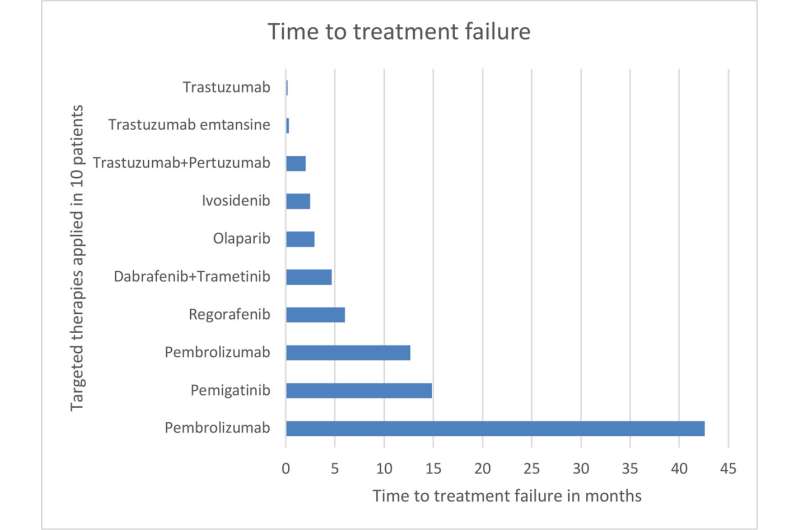This article has been reviewed according to Science X's editorial process and policies. Editors have highlighted the following attributes while ensuring the content's credibility:
fact-checked
trusted source
proofread
Precision oncology offers future prospects for biliary tract cancer

Gene alterations in biliary tract cancer offer potential targets for current or future precision therapies. This is demonstrated by a study conducted by Karl Landsteiner University of Health Sciences in collaboration with the Medical University of Vienna. In this study, published in the journal Frontiers in Oncology, cells from biliary tract cancer were examined for genetic alterations. The results demonstrate the potential of genetic profiling of tumors as a basis for promising and targeted therapies.
Advanced cancers of the biliary tract (BTC) are almost always fatal. With a current five-year survival probability of 2 percent, the search is on for new, effective treatments. One challenge is the high genetic variability and heterogeneity of tumor cells. In order to better exploit this variability for targeted therapies, it has now been systematically investigated. The team from the Karl Landsteiner University of Health Sciences (KL Krems) and the Medical University of Vienna used data from 92 affected patients in 3 centers in Austria as a basis.
"Today's sequencing methods allow us to localize genetic alterations in tumor cells very precisely," explains Hossein Taghizadeh, MD-Ph.D. from the Clinical Department of Internal Medicine 1 at St. Pölten University Hospital, one of the education and research sites of KL Krems, and first author of the study.
"These alterations are something like target coordinates for modern, very efficient and precise cancer therapies. Based on data from affected individuals in Austria, we wanted our study to create a systematic genetic 'map' of these target coordinates for BTC. At the same time, we aimed for showing that the methodology can be easily integrated into everyday clinical practice and that early tumor sequencing in advanced bile duct carcinoma should be established."
Published internationally, the analysis in the study provided extensive results. In fact, a total of 205 molecular genetic aberrations were found in 61affected individuals. Only in 15 affected individuals were no aberrations detected at all, and in another 16 the sample material was not sufficient for analysis.
The 205 aberrations included a total of 198 mutations occurring in 89 different genes. Other mismatches included those due to fusions of genes. Mutations of the KRAS and TP53 genes occurred most frequently (22.4 percent each). Both are "good acquaintances" in oncology, as their mutations are involved in the development of a whole range of different cancers.
To assess the extent to which the mutations found would be suitable as targets for an existing precision therapy, the team led by Taghizadeh, MD-Ph.D., used the so-called ESCAT classification. This classifies cancer cell mutations according to their suitability as targets for precision therapy. "Our result showed that a quarter of all affected individuals with proven genetic abnormalities could benefit from precision therapies." Thus, the study clearly shows that bile duct cancer offers numerous potential targets for effective precision therapies.
"Based on our findings," Taghizadeh, MD-Ph.D., explains, "we see a strong case for early molecular genetic profiling of BTC as part of the standard protocol—preferably before initiating systemic therapy. In this way, potential target coordinates for precision therapies could be found early and treatment adjusted accordingly. Especially since our work also demonstrates the feasibility of the necessary analyses in everyday clinical practice."
More information: Hossein Taghizadeh et al, Austrian tricentric real-life analysis of molecular profiles of metastatic biliary tract cancer patients, Frontiers in Oncology (2023). DOI: 10.3389/fonc.2023.1143825



















